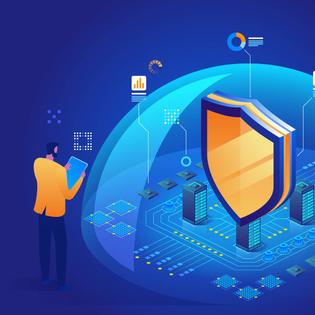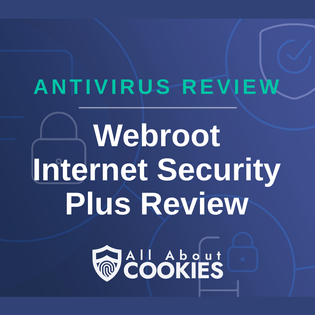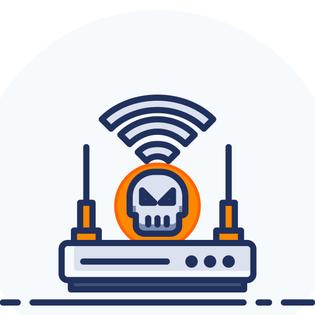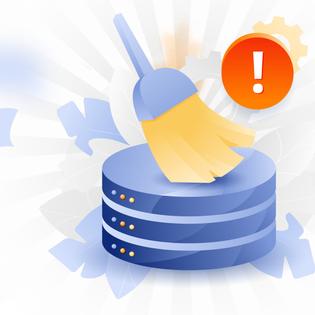Advertiser Disclosure
All About Cookies is an independent, advertising-supported website. Some of the offers that appear on this site are from third-party advertisers from which All About Cookies receives compensation. This compensation may impact how and where products appear on this site (including, for example, the order in which they appear).
All About Cookies does not include all financial or credit offers that might be available to consumers nor do we include all companies or all available products. Information is accurate as of the publishing date and has not been provided or endorsed by the advertiser.
Editorial Policy
The All About Cookies editorial team strives to provide accurate, in-depth information and reviews to help you, our reader, make online privacy decisions with confidence. Here's what you can expect from us:
- All About Cookies makes money when you click the links on our site to some of the products and offers that we mention. These partnerships do not influence our opinions or recommendations. Read more about how we make money.
- Partners are not able to review or request changes to our content except for compliance reasons.
- We aim to make sure everything on our site is up-to-date and accurate as of the publishing date, but we cannot guarantee we haven't missed something. It's your responsibility to double-check all information before making any decision. If you spot something that looks wrong, please let us know.
If you’ve gone on recent trips and been through any airports or stayed at a hotel, you’ve likely seen those public charging stations. Many of us have taken advantage of these charging ports, whether out of necessity or absolute convenience. Unfortunately, unless you want to be the next malware victim, you may want to think twice before using a device charging station now.
Juice jacking happens when hackers install malware or monitoring software on your device after you plug it into a compromised USB charging station. At this point, you wouldn’t know what you’ve connected to or if it’s dangerous. If a hacker is working on the other end of that connection, data can be moved back and forth between your devices and theirs.
If this puts a damper on your travel plans, we have some suggestions that will help you stay safe while enjoying some time away, including which antivirus is best for your iPhone or Android.
Popular juice jacking techniques
Risks of juice jacking
Tips to avoid juice jacking
What to do if you suspect you’re a victim of juice jacking
Juice jacking FAQ
Bottom line
Understanding juice jacking
Cybercriminals can load malware onto public USB ports giving them access to your personal data while your mobile device is charging. This is known as juice jacking. There aren’t many examples of this happening yet, but it was discovered as a potential threat after cybersecurity professionals demonstrated how juice jacking worked at DEFCON's 2011 conference.
If you’re concerned about juice jacking or malware, there are some signs that you’ve become a victim:
- Your device operates much slower
- Your device battery drains faster than usual
- Your device crashes frequently
- Your phone has an unexpected increase in data usage
- Keystrokes seemed delayed
- You start getting pop-up ads
- You notice new apps that you didn't install
You might not experience all of these symptoms, but one or two of these could indicate the presence of malware.
Popular juice jacking techniques
Juice jacking often happens when you plug into a station through an altered USB charging kiosk. It’s hard for the average person to know if a charging port has been tampered with, and cybercriminals are masters at not making it obvious.
There are also fake charging stations. Have you ever had your ID stolen when a gas pump card reader was compromised? It was impossible to tell that anything was wrong. Fake charging ports work similarly. They’re made to look like the real deal to keep you unaware until it’s too late. In addition to USB cables, some power strips may be compromised.
You should use caution and look for potential juice-jacking warning signs. If you ever get a message on your connected device asking you to “share data” or “charge only,” always select the latter option.
You never want to share your data with an unknown source. Likewise, don’t use cable and power banks that are left behind by someone. That is likely bait to trap you, and you should be suspicious.
Be cautious using public Wi-Fi
Though different from wired juice-jacking scams, your data can also be stolen through fraudulent Wi-Fi connections.
Bad actors set up fake networks that look similar to what you’d expect to find. For instance, if you’re at a coffee shop, “Coffeeshop_guest_WiFi” might look legit even when it’s not. Before you know it, your information has been hijacked.
A way to protect yourself on public Wi-Fi is to use a virtual private network, or VPN. Many of these cost less than $5 a month if you subscribe for longer than a month.
The best VPNs for public Wi-Fi security
| VPN |  NordVPN |
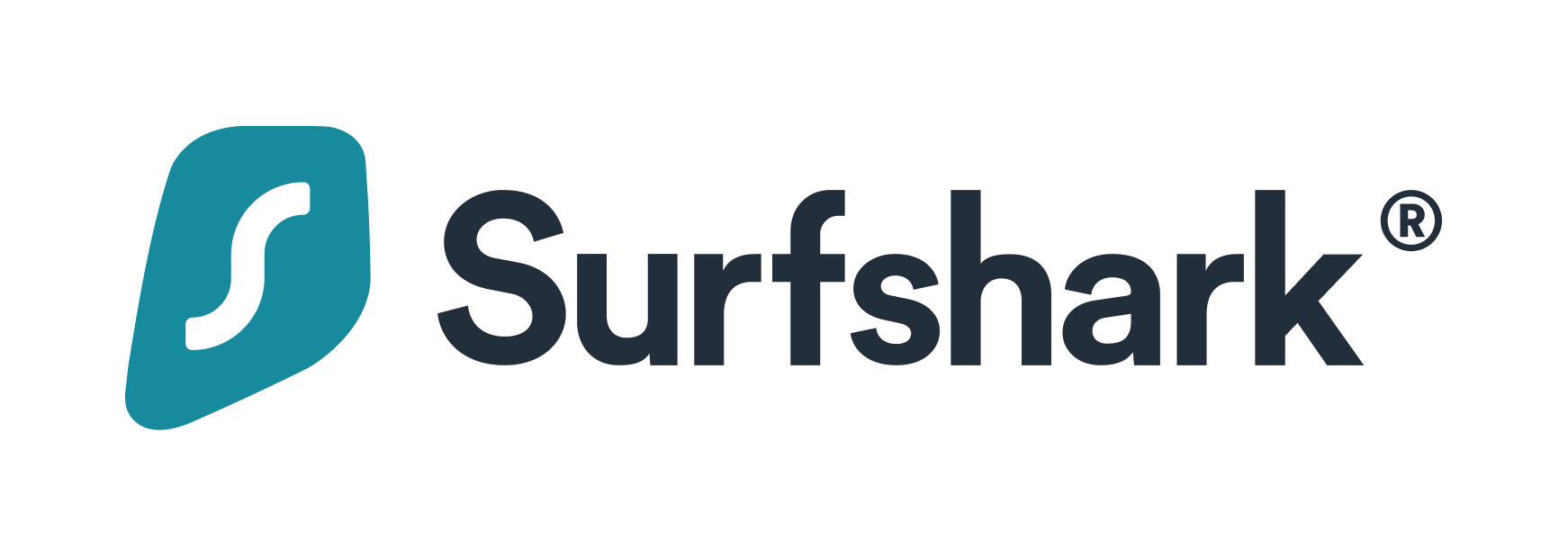 Surfshark |
 Private Internet Access |
| Starting price | $2.99/mo | Starts at $1.99/mo | Starts at $2.03/mo |
| Number of devices | 6 | Unlimited | Unlimited |
| Server count | 5,000+ in 60 countries | 3,200+ in 100 countries | 84 countries + 50 U.S. states |
| Streaming support | |||
| Torrenting support | |||
| Learn more | See NordVPN Pricing | See Surfshark Pricing | See PIA Pricing |
Risks of juice jacking
Data theft is one risk of juice jacking. Criminals could steal the data that’s available from your devices. Consider all the information you keep there. Data crawlers will scan them for personally identifiable information (PII). In a matter of minutes, you’ve unknowingly released access to your bank accounts, credentials, and other private information.
Malware installation is another risk of juice jacking. Data theft isn’t always the immediate goal. Sometimes hackers will install malicious software on your device.
Over time, they can get more data like your GPS location, purchase decisions, photos, and social media communications. They may even use ransomware and freeze your device until you pay a requested amount.
You can see how juice jacking can turn into a runaway train fast, taking your crucial data with it. That's why using one of the best anti-malware tools is also crucial.
Tips to avoid juice jacking
If some of this information reminds you of the last time you traveled and used a public charging station, don’t panic about the past. There are some ways to enjoy your time traveling while avoiding any juice jacking.
- Use an AC power outlet whenever possible.
- Bring your own car charger, USB cables, and wall charger when you travel.
- Take an external battery for extra juice.
- Never allow data sharing through external connections. Be cautious if your phone asks you to trust a new computer.
- Invest in a charging-only cable. These cables will charge your device but are unable to transfer data.
- Use antivirus software to block malware.
- Use a VPN while on public Wi-Fi.
What to do if you suspect you’re a victim of juice jacking
If you suspect you’ve been a victim of juice jacking, you should report it immediately to the venue of the public charging station. That may help others not have the same problem.
If your device has been hacked and you need to recover your data, you should run your antivirus software to clean the malware off. If the situation is dire, you can wipe your device of all information and restore it to default settings.
You’ll want to check all your financial accounts and social media for fraudulent purchases or suspicious activity. Freeze or close these social accounts. You may need to get new cards and start fresh with new login credentials. The goal is to be on the safer side once juice jacking takes place.
Juice jacking FAQ
How do I know if my phone has been compromised?
You may experience your battery draining faster than normal or lots of data being used on your device. Also, you may see tons of pop-ups appearing on your cell phone when that didn’t happen before. Those are signs that your phone has been compromised.
Where can I encounter juice-jacking attacks?
You can encounter juice-jacking attacks in places like airports, hotels, and coffee shops. Anywhere there is a public phone charging station, you’ll find possible juice-jacking attempts.
Is it safe to use wireless charging pads in public places?
Using wireless charging pads is a safer alternative than a USB charging port. They don’t require a physical connection, so your data is safer.
Bottom line
Since juice jacking is one of the latest techniques cyber criminals are using, it’s crucial to stay cautious when you’re on the go. Take chargers with you and have antivirus software already installed on your phone. Never use public charging stations since it’s too hard to know if they’ve been compromised.
Consider using a VPN for better security. The best VPNs for travel provide fast, reliable internet while protecting your data. You can still take the family for a fun vacation without worrying about your data getting stolen. Implementing the tips in this article will help you stay safe whenever you travel.
-
High-quality VPN offering safety and speed
-
Loads of servers for multiple connection options
-
Works with popular streaming services, including Netflix
-
Too many confusing plans
